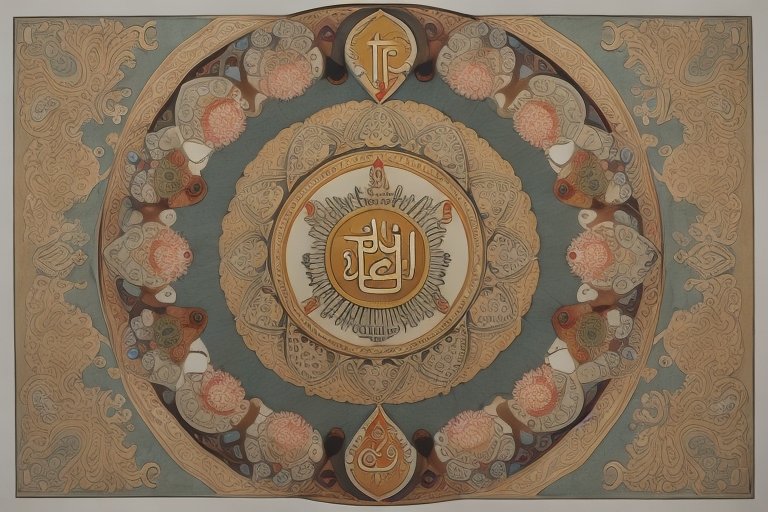Spiritual Meaning of Faith- Explore The Hidden Meaning
The spiritual meaning of faith lies in its role as a profound trust and belief in something greater than oneself. It’s a conviction that transcends the tangible, offering solace, purpose, and a connection to the divine or higher purpose. Faith fosters hope, resilience, and a sense of belonging, providing guidance on life’s journey.
Picture this: a journey through life that’s not just a sequence of events, but a tapestry woven with threads of belief and trust. The hues of uncertainty and doubt transform into the vivid colors of conviction, purpose, and connection. It’s the journey of faith – a journey that transcends the ordinary, guiding us toward a deeper understanding of the unseen forces shaping our existence.
In this exploration, we won’t simply scratch the surface; we’ll dive into its depths. As we navigate this path, we’ll unravel how faith serves as a beacon of hope, resilience, and inner strength, igniting our spirits and lighting our way through the darkest of times. Join us as we embark on a transformative quest, shedding light on the spiritual significance of faith’s existence.
Key Takeaways
- Faith nurtures patience, resilience, and reflection.
- Faith bridges differences, uniting believers.
- It comforts and guides us through challenges.
- Faith uncovers growth and meaning in life.
- Recognize blessings, seek higher guidance, and be thankful.
- Deep faith drives growth and positive change.
- Questioning strengthens faith’s foundation.

What is The Spiritual Meaning Of Faith?
In the realm of spirituality, the concept of faith carries profound significance across various belief systems and philosophies. While interpretations might diverge depending on individual perspectives, there are core themes that underline the spiritual meaning of faith. Exploring these themes sheds light on how faith transcends the visible and becomes a guiding force in the unseen aspects of life.
A Connection to the Unseen
At its essence, the spiritual meaning of faith is rooted in the belief in forces, energies, or truths that extend beyond the tangible world. It’s an acknowledgment that there exists a realm beyond what our senses can detect, and faith is the bridge that connects us to this unseen reality. This connection often represents a deep trust in the existence of higher powers or cosmic energies that influence the course of our lives.
Alignment with Purpose
Spiritual faith often aligns with the notion that every individual has a purpose or a unique role in the grand tapestry of existence. It’s the unwavering conviction that life’s experiences, challenges, and triumphs are part of a greater plan. This perspective infuses every moment with a sense of purpose and meaning, encouraging individuals to view their journey as an opportunity for growth and contribution.
Embracing the Unknown
A vital aspect of spiritual faith is the willingness to embrace the unknown. It’s an understanding that while we might not have all the answers, there is beauty and wisdom in surrendering to the mysteries of life. This acceptance fosters humility, patience, and a genuine openness to exploring new possibilities and insights.
Transcending Doubt
Doubt is an inherent facet of human nature, yet spiritual faith encourages a delicate dance between doubt and belief. It’s not about eradicating doubt but rather about using it as a catalyst for deeper exploration and understanding. This interplay enriches one’s faith, making it more resilient and authentic.
Nurturing Inner Transformation
Beyond its external implications, spiritual faith serves as a catalyst for inner transformation. It invites individuals to embark on a journey of self-discovery, introspection, and personal growth. As faith deepens, qualities such as compassion, gratitude, and self-awareness often flourish, contributing to the individual’s overall well-being.
Cultivating Connection
Faith has the remarkable ability to bring people together, transcending differences and boundaries. It unites individuals who share common beliefs, creating a sense of community and shared purpose. This interconnectedness emphasizes the idea that faith, regardless of its specific form, has the power to bridge divides and foster understanding.
In essence, the spiritual meaning of faith transcends mere belief; it’s a dynamic force that resonates with the unseen aspects of our existence. It’s a reminder that there is more to life than what meets the eye – a realm of purpose, connection, and growth that becomes accessible through the profound act of having faith.

7 Interpretations Of The Spiritual Meaning Of Faith
Discover the profound layers of faith’s spiritual essence through interpretations like connection to the unseen, guiding purpose, and embracing mysteries. Explore more in our table below.
| Interpretation | Description |
| Connection to Unseen | Faith serves as a bridge to unseen realms, connecting us to higher powers and energies beyond the tangible world. |
| Guiding Purpose | Symbolizes trusting life’s journey, believing that experiences contribute to a greater purpose beyond immediate understanding. |
| Embracing Mystery | Similar to open eyes embracing the unknown, faith encourages embracing life’s mysteries and seeking transformative insights. |
| Harmony of Doubt and Belief | Just as open eyes represent both awareness and uncertainty, faith thrives when balanced with doubt, leading to deeper understanding. |
| Inner Evolution | Faith symbolizes a journey of personal growth and heightened consciousness, nurturing qualities like compassion and gratitude. |
| Bonding and Unity | Like open eyes implying shared perception, faith unites individuals with common beliefs, fostering a sense of belonging. |
| Courage to Explore | Faith represents the courage to explore life’s depths, facing challenges and uncertainties with a steadfast belief in the unseen. |
Discovering the faith’s diverse spiritual interpretations—a bridge to unseen realms, a compass for purpose, a guide through mystery. Balancing doubt and belief, nurturing growth, and fostering unity Each facet weaves a unique story of spiritual connection and growth.
Spiritual Meaning of Faith In Different Culture
Explore the spiritual tapestry of faith across cultures. From Christianity’s trust to Taoism’s balance, each culture infuses faith with unique meaning and significance.
| Culture | Spiritual Meaning of Faith |
| Christianity | Faith represents trust in God’s plan, salvation through Christ, and a pathway to eternal life. |
| Islam | Faith (Iman) is a central pillar, signifying submission to Allah’s will, belief in the unseen, and afterlife. |
| Buddhism | Faith embodies confidence in the Dharma’s teachings, the Noble Eightfold Path, and liberation from suffering. |
| Hinduism | Faith signifies devotion to deities, karma’s effects, and the cycle of birth and rebirth (samsara). |
| Sikhism | Faith centers on the One Creator, equality, selfless service (seva), and devotion to the Guru’s teachings. |
| Indigenous | Faith connects with spirits, nature’s energies, ancestors’ guidance, and maintaining harmony with surroundings. |
| Taoism | Faith aligns with Wu Wei, Dao’s natural order, and balance between Yin and Yang forces for harmonious living. |
Christianity
In Christianity, faith is a cornerstone. It symbolizes trust in God’s divine plan, Jesus Christ as the savior, and the promise of eternal life through faith. It’s a powerful force that provides comfort, guidance, and a sense of purpose in navigating life’s challenges.
Islam
Faith (Iman) holds profound significance in Islam. It signifies unwavering submission to Allah’s will, belief in the unseen, and the hope of eternal reward. Faith motivates adherence to the Five Pillars of Islam, fostering a sense of unity among believers.
Buddhism
Faith in Buddhism signifies confidence in the Dharma – the teachings of Buddha. It’s a deep belief in the Noble Eightfold Path leading to enlightenment and liberation from suffering. This faith fuels the journey toward inner transformation and self-realization.
Hinduism
In Hinduism, faith is intertwined with devotion to deities and understanding karma’s influence on life’s experiences. It reflects a commitment to dharma (righteousness) and embracing the cyclical nature of birth, death, and rebirth.
Sikhism
Faith in Sikhism centers on the One Creator (Waheguru), equality among all humans, and the principle of selfless service (seva). It’s a guiding force that inspires Sikhs to live by the Guru’s teachings and contribute positively to society.
Indigenous Cultures
Faith in indigenous cultures often connects with nature, spirits, and ancestors. It symbolizes a harmonious relationship with the environment, reverence for traditions, and seeking guidance from unseen forces for communal well-being.
Taoism
In Taoism, faith aligns with the Tao’s natural flow and balance. It emphasizes living in harmony with the universe, following the path of least resistance (Wu Wei), and recognizing the interplay between Yin and Yang forces.
Across diverse cultures, faith serves as a beacon that guides individuals toward spiritual understanding, purpose, and connection with the transcendent. It is a universal thread that weaves humanity’s spiritual tapestry.

Brief History Of Faith As A Cultural Icon
Faith, transcending epochs and cultures, has wielded immense influence as a cultural icon. From the dawn of civilization to the present, it has left an indelible mark on societies, shaping beliefs, practices, and artistic expressions.
Ancient Foundations
In the earliest human societies, faith emerged as a response to the mysteries of existence. Ancient civilizations wove faith into their daily lives, crafting rituals to appease unseen deities and divine forces. These expressions of faith not only sought favor but also laid the groundwork for communal bonding and societal cohesion.
Medieval Mosaic
The medieval era saw faith entrenched within the fabric of life. In Europe, the grand cathedrals stood as architectural marvels, reflecting faith’s centrality. Faith guided artistic creations, from illuminated manuscripts to intricate religious sculptures, serving as a medium for conveying spiritual narratives.
Global Cultural Threads
As civilizations expanded, faith interweaved cultures and belief systems. In the East, faith fueled Buddhist monasticism and Zen aesthetics, while in the Middle East, Islamic architecture and literature reflected deep spiritual devotion. Indigenous cultures celebrated nature’s spirits, fostering a profound connection between faith and the environment.
Enlightenment and Transformation
The Enlightenment challenged established faiths, advocating for reason and individual autonomy. However, faith persevered, adapting to changing times. New religious movements emerged, and faith continued to inspire social reform, civil rights movements, and humanitarian endeavors.
Modern Expressions
In the modern era, faith embraces diverse forms, from organized religions to spiritual eclecticism. It influences art, literature, and music, serving as a wellspring of inspiration. Faith’s role has expanded beyond the confines of religious institutions, resonating within the hearts of individuals seeking meaning in a complex world.
A Tapestry of Meaning
The historical journey of faith illustrates its enduring significance as a cultural icon. It has connected civilizations, shaped architectural marvels, inspired masterpieces, and fueled revolutions. Today, faith’s legacy continues, a testament to its role in shaping human identity, purpose, and collective aspirations.
In tracing the historical tapestry of faith, we witness its evolution from ancient rituals to modern interpretations. Its rich narrative illuminates how faith, as a cultural icon, remains a potent force guiding humanity’s pursuit of transcendence and understanding.

The Relevance Of Faith As A Spiritual Symbol For Modern Society
In today’s rapidly changing world, faith endures as a powerful spiritual symbol, offering guidance and solace amidst uncertainty. As a beacon of hope, it navigates the complexities of modern life, fostering connection, resilience, and purpose.
Inner Resilience Amidst Turbulence
Modern society grapples with constant change and challenges. Faith, as a spiritual symbol, instills inner resilience. It reminds us to embrace life’s uncertainties with grace, providing a steadfast anchor during turbulent times. Faith bolsters mental and emotional strength, enabling individuals to navigate stress and upheaval.
Unifying Amidst Diversity
Faith serves as a unifying force in a diverse global landscape. It transcends cultural, religious, and ideological boundaries, creating bridges between people of varying backgrounds. In a world often divided, faith fosters empathy, understanding, and a shared sense of purpose, enabling collaboration for positive change.
Meaning Amidst Materialism
In a society driven by materialism, faith offers a counterbalance by nurturing a deeper sense of meaning and purpose. It reminds us that life’s value extends beyond material possessions, encouraging a focus on personal growth, relationships, and contributions to the greater good.
Guidance in Ethical Dilemmas
Faith provides ethical compass in the face of moral dilemmas. It prompts introspection, urging individuals to align their actions with higher principles. In modern ethical debates, faith encourages dialogue that considers the well-being of individuals, communities, and the planet.
Hope in the Digital Age
The digital era presents both opportunities and challenges. Faith, as a spiritual symbol, reminds us to seek balance between virtual and real-life connections. It offers hope beyond virtual screens, emphasizing the importance of genuine human interactions and emotional well-being.
Balancing Individualism and Community
Modern society celebrates individuality, which often leads to isolation. Faith encourages a balance between personal growth and community engagement. It inspires individuals to share their unique gifts while contributing to the well-being of society at large.
Nurturing Inner Fulfillment
Amidst the pursuit of success and external validation, faith points to an internal journey of fulfillment. It reminds us to cultivate qualities like gratitude, compassion, and mindfulness, leading to a deeper understanding of ourselves and others.
In a world marked by rapid change, faith’s spiritual relevance remains steadfast. It provides a compass for navigating complexities, fostering unity, guiding ethical choices, and nurturing inner well-being. As a symbol of hope and connection, faith continues to light the path toward a meaningful and purposeful modern existence.
Representation Of Faith In Different Mythology
Explore the myriad representations of faith in diverse mythologies, from devoted gods to cosmic harmony, unveiling how beliefs shape ancient narratives and cultural identities.
Greek Mythology: The Power of Devotion
Greek mythology showcases faith through stories of devoted worship to gods and goddesses. Characters like Prometheus embody unwavering belief in their cause, illustrating how faith in higher powers can drive acts of bravery and sacrifice.
Norse Mythology: Bonds of Trust and Destiny
In Norse mythology, faith is intricately tied to destiny and the unbreakable bonds between gods, humans, and nature. The concept of “wyrd” highlights the trust individuals place in the weaving of fate, symbolizing a harmonious connection between mortal and divine.
Hindu Mythology: Bhakti and Divine Love
Hindu mythology emphasizes the significance of bhakti, or devotion, as a manifestation of faith. Characters like Hanuman epitomize unwavering devotion to deities, showcasing how faith can transcend challenges and lead to divine connection.
Egyptian Mythology: Pathways to the Afterlife
In Egyptian mythology, faith centers on the journey to the afterlife. Rituals, symbols, and elaborate burial practices reflect the belief in an eternal existence beyond earthly life, exemplifying how faith shapes preparations for the unknown.
Chinese Mythology: Harmony and Cosmic Balance
Chinese mythology embodies faith through the pursuit of cosmic harmony. Characters like Houyi and Chang’e exemplify virtues like loyalty and sacrifice, reflecting how faith in maintaining cosmic balance is woven into cultural narratives.
Indigenous Mythologies: Connection to Nature and Spirits
Indigenous mythologies worldwide highlight faith’s connection to nature and ancestral spirits. Stories of spirit animals, nature deities, and creation myths underline the deep bond between faith, nature, and cultural identity.
Mesopotamian Mythology: Divine Order and Loyalty
Mesopotamian mythos emphasizes faith’s role in maintaining divine order. Loyalty to gods and adherence to rituals demonstrate how faith shapes societal norms and human conduct, emphasizing the importance of spiritual devotion.
Celtic Mythology: Mystical Realms and Belief in the Otherworld
Celtic mythology delves into the belief in mystical realms and an Otherworld parallel to our own. Tales of fairies, magical creatures, and portals underscore how faith in the unseen influences Celtic beliefs and cultural expressions.
In various mythologies, faith takes multifaceted forms, revealing its intricate role in shaping cultural values, relationships, and narratives. These diverse representations provide a rich tapestry of insights into the profound impact of faith across different civilizations.
FAQ’s
Can faith bridge divisions in society?
Yes, faith transcends boundaries, fostering empathy and shared purpose, uniting people who hold similar beliefs.
Is faith solely religious?
No, faith extends beyond organized religion. It embodies trust, guiding principles, and a belief in the unseen in various contexts.
How does faith relate to personal purpose?
Faith aligns with purpose, guiding individuals to view life’s experiences as part of a greater plan, enriching their journey.
Can faith navigate life’s challenges?
Indeed, faith offers strength and solace during hardships. It provides hope and resilience, helping individuals navigate adversity with grace.
Does faith evolve over time?
Yes, faith is dynamic. It evolves through introspection, exploration, and a continuous quest for deeper spiritual understanding
Summary
In exploring the spiritual meaning of faith, we’ve uncovered its transformative power, cultural significance, and universal relevance. As we journey through life’s mysteries, let faith be our compass.
Embrace doubt as a stepping stone to deeper understanding. Let it bridge divides and foster unity. In the tapestry of diverse beliefs, let faith illuminate your path toward a purposeful, connected, and resilient existence.